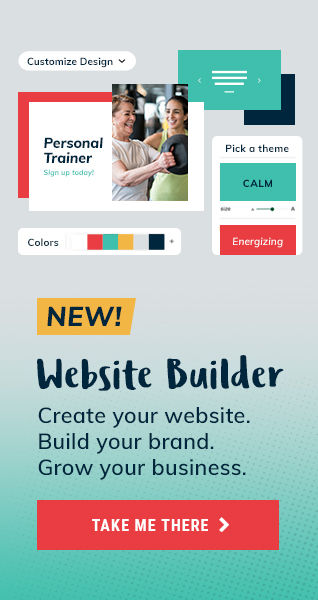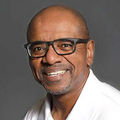ACE recently attended and presented at the National Conference on Race and Ethnicity in Higher Education (NCORE). According to the organization’s website, NCORE is “the leading and most comprehensive national forum on issues of race and ethnicity in higher education” and provides “a significant forum for discussion, critical dialogue, and exchange of information as institutions search for effective strategies to enhance access, social development, education, positive communication and cross-cultural understanding in culturally diverse settings.”
So, what was ACE doing at an event focused on higher education? The goal was to share lessons ACE learned as we stepped to the forefront of the equity, diversity and inclusion (EDI) conversation in the fitness industry over the past few years and, more importantly, to learn from the higher education community, which has been doing this work for decades.
What This All Means to You
ACE wants you to know that we are working to bring the voice of the organization to important conversations in and around the fitness industry, and to advocate for ACE Certified Professionals wherever and whenever we can. In addition, we are committed to bringing what we learn back to you so that you can improve your services, expand your businesses or simply have a better understanding of the current and future state of the fitness industry.
Read on to learn more about ACE’s experience at NCORE and for a call to action to implement what we learned at this important event.
Gabrielle Johnston, MPH, ACE Senior Director of Communication and Public Affairs, and Rory James, MPH, Director of Diversity, Equity, Accessibility & Inclusion (DEAI) at the Saint Louis Zoo and an EDI consultant for ACE, led their presentation entitled “What Do a Zookeeper, Personal Trainer, and Higher Ed Professional Have in Common? DEAI Lessons Learned.” [Note that ACE uses the acronym “EDI,” while DEAI adds accessibility to the conversation. These are just two of the common acronyms, including DEI, which you’ll see below, used across various organizations and industries.]
“I was first introduced to NCORE in the early part of my higher education and DEI career,” says James. “NCORE is one of the few conferences and professional development spaces where you can unpack and critically discuss race, culture, gender, ability status, activism and social injustices in one place. With ACE and the Saint Louis Zoo being present, we are showing that we want to actively participate in conversations on equity and social justice. While we are still very new to this journey and the administrative structure of DEI, our non-profits are committing to being leaders in inclusion.”
After offering a timeline of ACE’s efforts in improving EDI both within the organization and in the industry as a whole (see below), Johnston and James discussed common challenges that organizations face as they do this important work, including the following:
-
Budget: With the rapid changes we’ve seen in the fitness industry over the past few years, alongside the struggles of many in the industry to keep their businesses afloat, it’s no surprise that budget is an issue, as EDI work requires resources and committed, ongoing effort.
-
Staffing: Because of the lack of funds to pay dedicated EDI staff, many organizations turn to their existing employees to add this responsibility to their already busy schedules. Another related issue centers on fatigue, which can come in many forms, such as “compassion fatigue,” “racial battle fatigue,” and general burnout.
-
Positionality: This refers to where the EDI staff report to and whether they have the power to enact policies that impact the entire organization. Also, how is the EDI staff viewed by others in the organization?
-
Pushback: Finally, there may be opposition, both internally and externally, to this type of work from important stakeholders, especially in today’s socio-cultural/political climate. This pushback can sometimes test the commitment level of the organization. How will you or organization respond to negative comments or social media or even from coworkers?
Significant Milestones in ACE’s EDI Efforts
June 2020– Made gift to the Advancement Project
August 2020– Began public relations effort around importance of EDI in health and fitness
January 2021– Onboarded EDI consultant
July 2021– Launched flagship EDI education course
-
Note: ACE continually releases EDI education courses. An entire library of EDI education can be found here.
December 2021– Launched internal EDI observation and celebration of awareness months
July 2022– Formed ACE EDI Council
April 2023– Published ACE’s EDI statement
A Call to Action
Whether you are a business owner, manage a group fitness staff, are a self-employed health coach or are on any of the countless other career paths that the fitness industry has to offer, it’s vital that you take a step back on occasion to evaluate the work you do from a different perspective. Does your staff represent the diversity of the community where your business exists? Are you creating an environment in which all potential clients or participants feel welcomed and empowered? Are you reaching those people in and around your community who may need you most but may not have easy access to you or your facility?
Take a look at the four common obstacles listed above—budget, staffing, positionality and pushback—and think about how you address them in your current role or how you might approach management in your facility and encourage them to take a more committed stance on EDI in the facility and in the fitness industry as a whole. These challenges can sometimes be substantial, and overcoming them takes ongoing effort from everyone involved, but ACE believes the work is essential as the fitness industry continues to evolve and strives to expand its reach into communities where their services are needed most.
 by
by 













 by
by